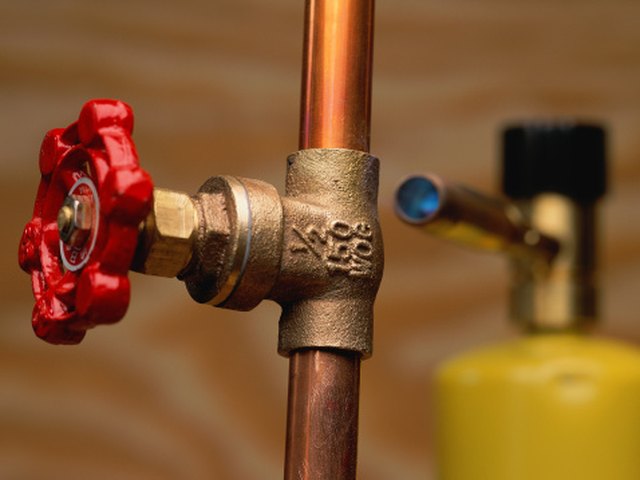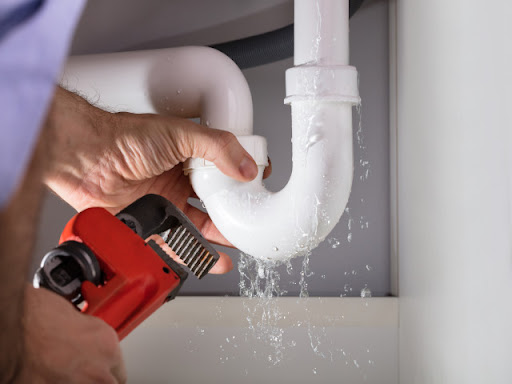Importance of Regular Plumbing Inspections

In the bustling world of commercial real estate, every property manager understands the critical importance of maintaining the infrastructure of their buildings. From electrical systems to HVAC units, every component plays a vital role in ensuring the smooth operation of businesses within those properties. However, one aspect that is often overlooked until it becomes a major issue is the plumbing system.
Regular plumbing inspections are not just a precautionary measure; they are a necessity for maintaining the integrity and functionality of commercial properties. In this article, we will delve into the reasons why regular plumbing inspections are essential for commercial properties and how they can save property managers time, money, and headaches in the long run.
Preventing Costly Repairs
One of the primary benefits of regular plumbing inspections is their ability to identify potential issues before they escalate into costly repairs. Leaky pipes, clogged drains, and faulty fixtures may seem like minor inconveniences at first, but if left unchecked, they can lead to water damage, mold growth, and even structural issues within the building. By conducting regular inspections, property managers can catch these problems early on and address them before they spiral out of control.
Ensuring Compliance with Regulations
Commercial properties are subject to various regulations and codes governing plumbing systems to ensure the safety and well-being of occupants. Failure to comply with these regulations can result in fines, legal liabilities, and damage to the property’s reputation. Regular plumbing inspections help property managers identify any areas of non-compliance and take corrective action promptly, thereby avoiding potential legal and financial consequences.
Maintaining Tenant Satisfaction
A well-maintained plumbing system is essential for tenant satisfaction. Nothing frustrates tenants more than dealing with recurring plumbing issues that disrupt their daily operations. Regular plumbing inspections help property managers address any plumbing problems promptly, minimizing downtime and inconvenience for tenants. By demonstrating a proactive approach to maintenance, property managers can enhance tenant satisfaction and retention, ultimately maximizing the property’s profitability. To learn more about plumbing, there are a ton of interesting articles at abacusplumbing.com/drain-sewer/.

Extending the Lifespan of Plumbing Systems
Like any other mechanical system, plumbing systems require regular maintenance to operate efficiently and prolong their lifespan. By conducting regular inspections, property managers can identify worn-out components, corrosion, and other signs of deterioration before they lead to major failures. Addressing these issues promptly through preventive maintenance measures such as cleaning, lubrication, and repairs can significantly extend the lifespan of plumbing systems, saving property managers the hassle and expense of premature replacements.
Enhancing Property Value
A well-maintained plumbing system is a valuable asset that can enhance the overall value of a commercial property. Potential buyers and tenants are more likely to be attracted to properties with updated plumbing systems that are in good working condition. Regular plumbing inspections demonstrate a commitment to maintaining the property’s infrastructure, which can increase its appeal and marketability in the eyes of prospective investors and tenants.
In conclusion, regular plumbing inspections are essential for commercial properties to prevent costly repairs, ensure compliance with regulations, maintain tenant satisfaction, extend the lifespan of plumbing systems, and enhance property value. Property managers should prioritize scheduling routine inspections by qualified plumbing professionals to identify and address any issues proactively. By investing in regular maintenance, property managers can protect their investments and create a safe, comfortable, and reliable environment for tenants and occupants.


 How to Create a Successful Financial Freedom Plan
How to Create a Successful Financial Freedom Plan  How to Use Social Media for Brand Building
How to Use Social Media for Brand Building  SEO Tools vs. Manual Optimization
SEO Tools vs. Manual Optimization  How Interest Rates Affect Home Prices
How Interest Rates Affect Home Prices  Pets Analysis Online Ecommerce Store
Pets Analysis Online Ecommerce Store  Medical Alert System Costs
Medical Alert System Costs